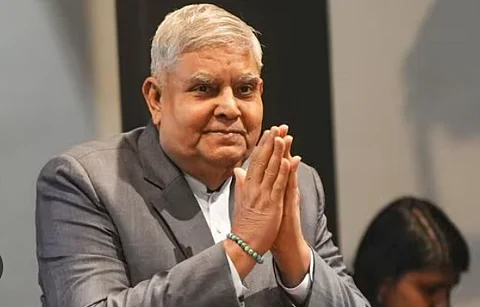

Former Vice President Jagdeep Dhankhar resigned unexpectedly on Monday evening, citing health concerns. His exit, which came amid the ongoing monsoon session of Parliament, caught the government off guard. Behind the resignation lies a deeper conflict—one involving the impeachment of Delhi High Court Judge Yashwant Varma, who faces corruption allegations.
As Rajya Sabha Chairman, Dhankhar accepted a notice signed by 63 Opposition MPs seeking Justice Varma’s impeachment. This move broke with tradition, where such notices typically emerge from a consensus process—often led by the Lok Sabha. The ruling NDA, which neither initiated nor signed the motion, was blindsided.
In response, senior ministers including JP Nadda and Kiren Rijiju met with Dhankhar, conveying Prime Minister Narendra Modi’s disapproval. The government reportedly wanted the impeachment process to originate in the Lok Sabha, where it has stronger procedural control.
Despite the pressure, Dhankhar stood firm, stating that his actions were fully within the parliamentary rulebook. However, tensions escalated quickly. The government, wary of losing grip over the sensitive impeachment process, directed ministers to boycott a critical business advisory committee meeting. Just hours later, Dhankhar submitted his resignation.
This rare mid-term resignation has triggered immediate institutional responses. The Election Commission has already begun preparing for the next Vice Presidential election, where 782 MPs will vote. While the Opposition INDIA bloc is expected to field a candidate, the NDA’s numerical advantage makes its victory likely.
More significantly, the episode highlights a deeper conflict—between constitutional procedure and political control. While Dhankhar insisted on following due process, the government aimed to manage the impeachment strategically, preferring a Lok Sabha-led route.
The resignation has created a power vacuum at a critical time and raised serious questions about institutional autonomy, judicial accountability, and the growing friction between procedural propriety and political dominance.